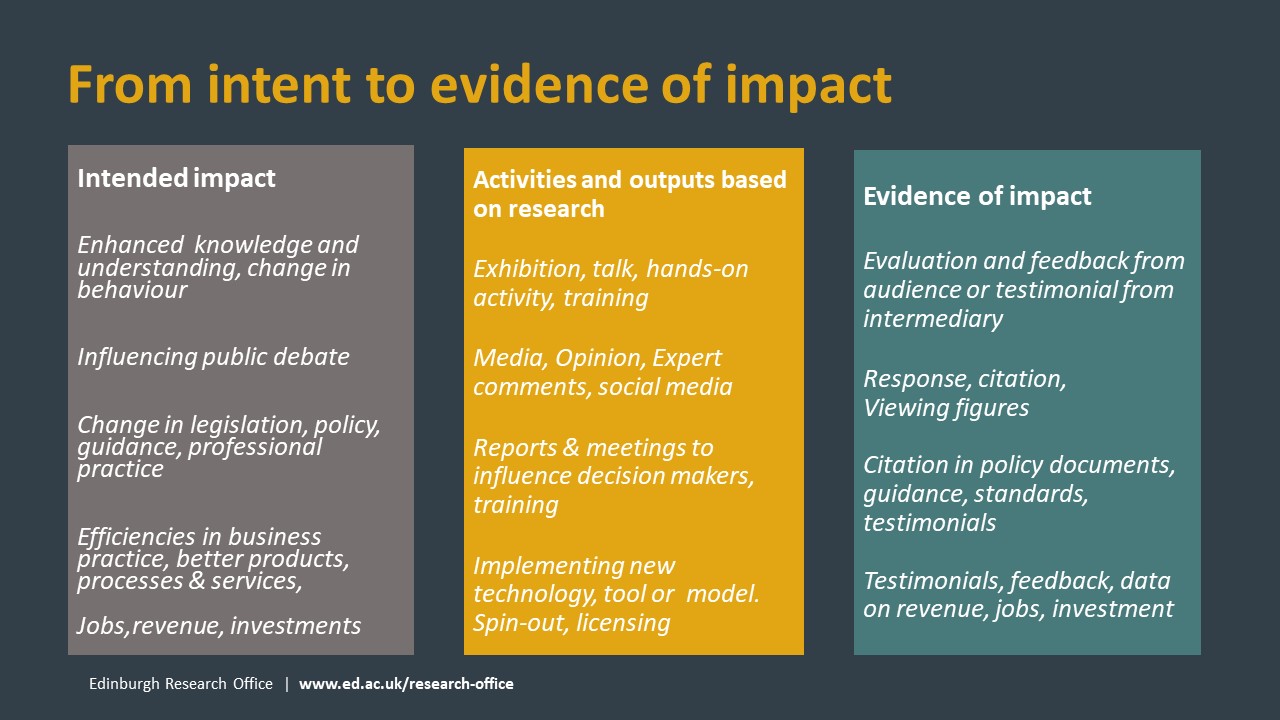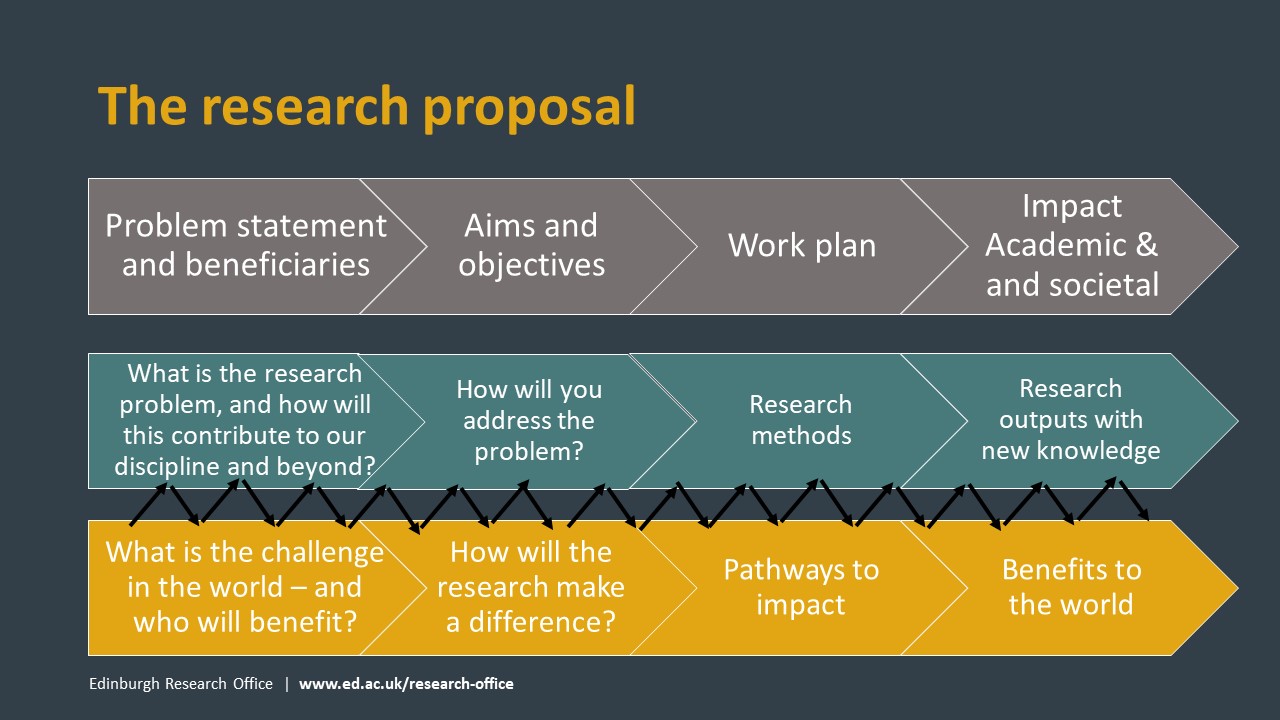In this post, Dr Shonagh McEwan – Knowledge Exchange and Impact Advisor, CAHSS – shares learning from a recent event about how you can build impact into your research.
This is the second of two blog posts on Knowledge Exchange and Impact.
Please refer to the first blog post if you’d like to know more about what ‘knowledge exchange’ and ‘impact’ is.
Read ‘All this talk about impact blog post’
How do you develop impact from research?
Many researchers value and understand the importance of knowledge exchange, engagement and impact. Those researchers may, but not always, recognise the difference their own research could make beyond academia. They might have even started with some early discussions and collaborations with people and organisations external to the University.
What we find that some researchers can struggle with, is knowing how to build impact into their research. If you are finding this a challenge, we suggest you start by asking yourself some key questions:
- Why is your research important (and why now?) A researcher once observed that: if you can ask, and answer the academic “so what” question, and then add the question, who could benefit from that? then you may be closer to the potential impact it may make.
- Who you need to engage with – and perhaps influence – in order for the research to have benefit? These may be decision makers in a local authority, or an influential organisation in the third sector, or a cultural organisation and so on.
- How do you engage before, throughout and after the research is completed? This is not about you pushing your idea – research is more likely to be relevant and users are more likely to engage, take up and use the results if they are involved and can bring their concerns and ideas into the process. So you need to plan for how you will engage, and the types of exchanges that can be built in right at the start of the process.
Your answers to these questions of course will be bespoke to your research and your projects, but the main point is that knowledge exchange and engagement should intend to lead to impact.
Here’s an image to help show different types of intended impact, related activities and how you might try – as best you can – to capture evidence of impact throughout the process:

And we know this takes effort, resources and an acknowledgement that there are things within your control (activities), within your sphere of influence (such as the outcomes) and ultimately much that is outside of your control (such as the impact). We don’t just do X and then Y happens – it is complex.
Weaving knowledge exchange and impact into your proposal
When it comes to crafting a research proposal, you will go through a process to articulate the research problem, your methods, research outputs and so on. Developing the potential for impact from your research is also a process and needs a similar mode of thinking.
You need to consider the challenge your research is addressing in the world, who will benefit, how the research can make a difference and what methods/activities and so on you need to use in order to develop potential for impact.
The following image weaves the blue and yellow rows together because it is important to embed knowledge exchange and impact (KEI) into your proposal in a way that is relevant to your research project and appropriate to the funder’s guidance.

Relationships matter
You might hear ‘engagement’ and ‘dissemination’ getting conflated, but knowledge exchange and engagement are based on mutuality. It is designing activities with active participation from all parties, and based on developing mutually beneficial partnerships and relationships with stakeholders outside of the university, that will lead to potential impact. One-way dissemination activity alone is unlikely to create potential for impact from your research.
So focus your effort and resources on where you have influence by conducting high quality knowledge exchange activities and engagement, and based on mutual benefit and mutual exchange that is connected to your research – right from the start, not as an ‘add-on’ or something you ‘do’ at the end of the research project.
You’re not alone!
There are colleagues in the University who are here to help. Your local research office is your first port of call, and you may also have a KEI Manager with expertise within your School or Centre. Wider teams within the University, such as our Knowledge Exchange and Impact Team and also Edinburgh Innovations have expertise for you to call upon, depending on what you need.
We all work closely with local research offices, and together with wider teams across the University, and we are here to enable you and your research to make a difference.
Next steps:
Watch the full video on ‘impact basics’ (University of Edinburgh staff access only).
Access the slides from the Impact Basics event (University of Edinburgh staff access only).
Read our guide on how to build knowledge exchange and impact into your research (University of Edinburgh access only).
Know how to contact the Knowledge Exchange and Impact Team: ke.office@ed.ac.uk
Take your skills to the next level with Engage, which is a practical online learning programme focused on the “how to” of external engagement and its associated skills.
Engage is designed for research staff at any level who are new to external engagement, who aspire to engage in the future, or who wish to enhance their skills and engagement.
Explore all learning resources on our Engagement for Impact Hub. This includes examples and case studies of knowledge exchange. (University of Edinburgh access only)



